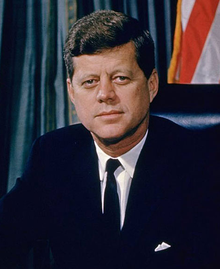Irish Independent, 2011
Such is the power of myth that John F Kennedy’s visit to Ireland in the summer of 1963 affected people who weren’t even born at the time. Ryan Tubridy’s fascination with the man is proof of that.
It meant little to me, though. A teenager who had just done his Leaving Cert, I had other things on my mind, not least how to hedonistically pursue a study-free interlude before college had the chance to envelop me in yet another educational straitjacket. So the American president’s visit to the land of his forefathers was not foremost on my to-do list.
Anyway, this Cold War advocate had frightened the wits out of me the previous October, my father gleefully assuring me that the Cuban missile crisis might well end in all of us being reduced to particles of dust. The glee came from the fact that my father was such an unquestioning disciple of American imperialism – the notion that US might just had to be right – that nuclear catastrophe was almost to be welcomed if it was the inevitable outcome of an American president standing up to the Commies.
Unlike other Irish families, though, we didn’t have a framed photograph of JFK mounted on our living room wall alongside a portrait of the Sacred Heart, which we didn’t have, either. Still, Kennedy loomed large in my father’s conversation, his awe of the presidential office increased by wonder that someone of lowly Irish extraction could climb so high – confirmation that America really was the land where anything could happen for anyone.
This narrative, much repeated by my father, conveniently left out the fact that JFK was the pampered son of a very wealthy man of dubious character, attitudes and behaviour, and of course revelations about the young president’s sleazy sexual shenanigans hadn’t yet been publicly aired, so Kennedy remained a sainted figure in my father’s mind until much later, when he came to express disgust for his fallen idol.
These revelations, however, had little effect on me. Less credulous than my father, who was a dutiful civil servant and a believer in the authority of power, I had never imagined politics to be a holy vocation. Indeed, from an early age I’d felt the alluring pull of temptation and thus had assumed that a profession with such social, sexual and otherwise influential possibilities would be especially attractive to those with a weakness for vice and venality.
That realisation, though, came late to my father, for whom JFK in the brief years of his presidency was a golden ideal, destroyed in the end by senselessly malevolent tragedy but otherwise untainted – indeed, forever impossibly handsome and reassuring as he smiled and waved from his limousine to the people of Ireland who’d turned out to pay him homage and bask in his reflected radiance.
It was all a dream, of course, and a manufactured one at that, but there was something else, too, something in the man’s aura that even now is worth preserving and cherishing. If you read American Caesars, Nigel Hamilton’s outstanding study of the last twelve US presidents, you’ll find much in his forty pages on Kennedy that will cause you to regard the man’s sexual behaviour as repellent – not least in his contemptuously casual use of young women as receptacles for his persistent and passing lusts (detailed yet again in Mimi Alford’s recent memoir of her affair with him) – though less repellent than the sexual behaviour of his successor, Lyndon B Johnson.
Perhaps that’s just because Johnson looked like a gargoyle while Kennedy was an ageing Adonis (many would afford a similar indulgence towards Bill Clinton and for the same reason), but Hamilton also acknowledges a charisma in Kennedy that went beyond mere beauty.
Hamilton doesn’t quote F Scott Fitzgerald, but there’s a passage in the opening paragraphs of The Great Gatsby that captures something of Kennedy’s mysterious potency and allure. Narrator Nick Carraway observes of Gatsby that “if personality is an unbroken series of successful gestures, then there was something gorgeous about him, some heightened sensitivity to the promises of life…an extraordinary gift for hope, a romantic readiness such as I have never found in any other person”.
This elusive but unmistakeable quality is rare in people and even rarer in politicians. No Taoiseach has had it and no British prime minister, either, though Tony Blair and his spin doctors attempted to manufacture some such persona early in his premiership. Clinton came closest to it in America and Obama seemed to embody it until the mudane details of office took their deadening toll.
But you can still think of Kennedy when you read this passage by Fitzgerald, with the added poignancy that both the doomed Jay Gatsby and the doomed JFK were struck down in their prime, their promise teasingly unfulfilled, their brief lives over before age, decay and disappointment had the chance to enforce their cruel realities.
It’s an illusion, of course, but such is our desire for necessary illusions that it will linger longer than any kiss-and-tell memoir about a president behaving badly.

